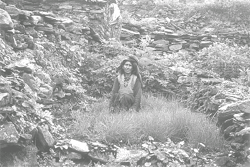Scent of good business
 the villages in Pithoragarh's Jowahar Valley reverberates with life every summer. Farmers migrate to this area to cultivate various medicinal herbs and also jambu (allium stracheyi), a unique variety of onions. It is a much-sought after condiment for the local cuisine.
the villages in Pithoragarh's Jowahar Valley reverberates with life every summer. Farmers migrate to this area to cultivate various medicinal herbs and also jambu (allium stracheyi), a unique variety of onions. It is a much-sought after condiment for the local cuisine.
The cultivation of these herbs, which started after the 1962 war with China, has improved the economic status of farmers belonging to the Bhotia community. The war had totally devastated the existing trade in herbs with Tibet. Says Bhadur Singh Laspal, a retired teacher from Laspa village, "In 1954-55, aathis, a particular type of medicinal plant, was sold at Rs 8 per kg but today the price has touched Rs 800 per kg.'
By September every year, Munsyari, a small town around 154 km from Pithoragarh town, becomes the hub of the trade. Farmers, contractors and traders of herbs meet here. Trucks carrying herbs, some cultivated, others extracted from forests, are transported from Munsyari to Haldwani.
The migration starts in May when villagers trek along river Goriganga to the Jowhar Valley. The leech-infested route has gorges on one side and steep hills on the other. Milam, 54 km from Munsyari, at 3,500 metres above sea level, is the last accessible village before the Indo-Chinese border, where jambu production is highest.
Farmers from Lapsa, Martoli, Mapa and Milam are experts in cultivating medicinal plants like aathis, hathazari, gangryan, kalajeera, bilayati jeera, kut, salampanza, jambu, tejpat, pasanbhed, reetha, timurbeej and dhup lakre .
However, growing herbs is not easy. Mohan Singh, a herb farmer in Laspa, points out that labour shortage and limited capital affects his farming. Availability of cultivable land and procuring seeds of medicinal herbs are other problems. So, as Laspal points out, some farmers make easy money by collecting herbs from the wild. "These labourers resort to indiscriminate extraction,' allege Laspal. The government is yet to support these herb-growers. R S Tolia, director, Uttar Pradesh Academy of Administration, Nainital, voices the same concern and says, "Our scientists have not done anything for these people, except for writing theses in journals.'
